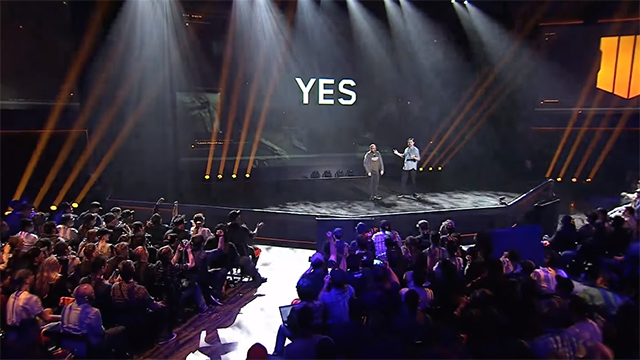Call of Duty developers have a lot to balance. They each have to figure out what mechanics to take, what ones to tweak, and what ones to trash completely in addition to picking a fresh setting or angle that hasn’t been done to death. That’s hard to do after nearly two decades of annualized releases and it looks like the next Call of Duty is making that process even harder. Leaks and reports point to the Call of Duty 2021 title being another WWII game called Call of Duty: Vanguard, which is exactly what the series needs to get away from.
The first rumblings of Vanguard weren’t so dire as Modern Warzone reported that it was going to take place during the 1950s as if World War II had never ended. This alternate take isn’t exactly the most original idea in the book, but there’s something to plunder there just between the lines of fiction and non-fiction. MachineGames’ Wolfenstein series has been telling phenomenal stories within those margins (except for one exception) and shown how successful going just outside of the confines of the Second World War can be. Such stories, like the one in Paradise Lost, can give us perspective about how things could have been different or look at the horrors of the Nazis through a slightly different framework.
Storming Bore-mandy

But it doesn’t seem like Vanguard is doing anything of that nature. Eurogamer’s report — backed up by years of early, accurate reporting on the franchise — claims that Sledgehammer is developing the game and it will be a “traditional WWII setting,” despite Modern Warzone’s earlier claim. “Traditional” is how Call of Duty has been treating the conflict since its inception and it’s time to move on.
World War II is a tired setting for most video games as they do mostly the same tired things. Many primarily focus on the European settings of the conflict and follow a group of white dudes as they slay Nazis all over the continent. Other series like Medal of Honor and Battlefield are guilty of this, too, and helped contribute to the fatigue surrounding WWII and video games. It all blended together because they were all mostly slavish devotions to Band of Brothers and Saving Private Ryan.
These titles tended to only look at those two pieces of media as inspiration as if it wasn’t a global war that is open for more types of tales and places that we’ve seem a dozen or more times. Sledgehammer would be wise to do something different with it like follow one small group of abandoned soldiers, do a one-take-style game in the vein of 2018’s God of War or the film 1917, or take place in an unexpected part of the world.
It has to have some sort of hook because being just another WWII COD game just isn’t it. There have been too many of those. Part of Call of Duty 4: Modern Warfare’s success was predicated on WWII fatigue in the first place since the comparison made the modern setting much more refreshing.
Sledgehammer failed bringing life to the Second World War as 2017’s WWII is one of the most forgettable installments in the whole series. It looked better and had a more cinematic presentation than its predecessors, but was still as stale as ever. Storm the beach, run through the trenches, shoot at the Nazi bunker, rinse and repeat.
Boots on the ground at all costs

This narrative apathy also translates to the gameplay. The 1940s doesn’t allow for the most liberties with the gunplay as it is tied to the technology at the time, meaning there aren’t a lot of weapons to choose from. We’ve all shot more M1 Garands and MP 40s in WWII shooters than were probably actually shot in WWII. Even if Sledgehammer manages to tell a unique, engaging story, the gameplay will undoubtedly be tied to these old and tired weapons.
Another Advanced Warfare would naturally address these criticisms as the first one demonstrated Sledgehammer’s true and unbounded creativity. The near-future setting was visually unique and the tech the team invented allowed for more unique gameplay scenarios that still hold up even six Call of Duty games later. Grappling around, boost jumping to new heights, using unique skills, and piloting advanced robotics is exponentially more engaging than running through France with a Thompson submachine gun and occasionally using a run-of-the-mill tank. The odd cult-like obsession with “boots on the ground” isn’t allowing these studios to trek into more interesting territory and expand past what we’ve already seen time and time again.
It’s entirely possible that Call of Duty: Vanguard will be an incredible entry in the long-running franchise and tell a different tale that justifies its existence. But given Sledgehammer’s tepid last title, the banal limitations inherent to the time, and lack of unique ideas in World War II games, it’s hard to see this as anything but a waste of potential before its official announcement. Too many WWII games have already pissed in that well and going back to that well is inherently disappointing, even if that means shooting a bunch of Nazis along the way.







